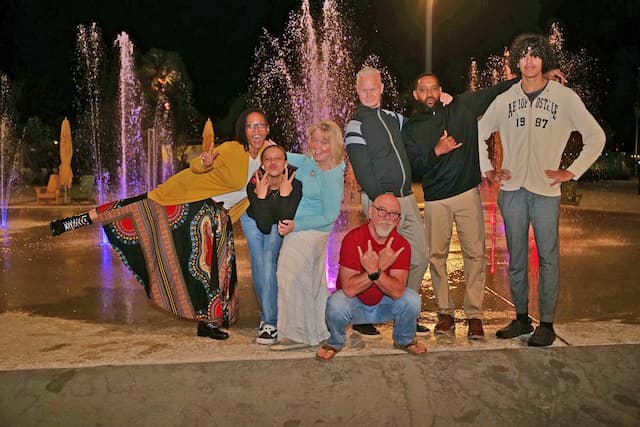The incredible message

The gospel is the one message the church must embody. Why don’t Aussies find it credible?
There was a time when the church held powerful influence in Western society. Bishops were on the chessboard, and in the House of Lords.
Today, Australians have told us they don’t belong under that influence anymore. It’s time to review our belief and practice, to ask if we have misrepresented our God or misused our influence.
Once upon a time the church represented values that the broad population believed they should hold. We could appeal to people’s guilt for not practicing those ideals. That doesn’t work when people reject the church’s values and therefore our imputation of guilt for failing to keep them.
Our message: a gospel of guilt
In the Middle Ages, the Catholic church told people, “You’re guilty, so confess to the priest, and do penance. We will absolve you and sacrifice Christ again for your forgiveness (the mass).”
Reformers recognized this as a ploy to put salvation in the hands of the church. “It is God who justifies, not the pope or his servants,” said Martin Luther. This was such a relief for a man who had constantly wrestled his conscience, his feelings of guilt as a priest of the church.
But Luther never questioned why the church was imputing guilt. He didn’t question the underlying issue of the church’s right to stand in judgement over the world. To this day, you still hear Protestant churches condemning people as sinners to drive them to salvation: “the bad news, good news” switch.
In essence, the church’s message (Catholic or Protestant) has been, “You are guilty (sinner). We have the means to set you right with God (justify). Believe (faith), or die condemned.”
We need a further Reformation. Luther was right to take justification out of human hands, to insist that it is God who justifies. In the same way, we need to take condemnation out of human hands, to insist that judgement belongs to God alone.
The guilt-gospel never was the gospel of Christ. Why did we ever think the gospel was, “For God sent his Son to condemn the world, so people would feel their guilt and cry out to be saved?” I guess it’s something to do with power over people.
What saves is not a revelation of guilt, but a revelation of God. When we see who God is, we see ourselves and our need before him. It doesn’t work the other way around.
God did not send the world a message of condemnation. He sent his Son. The incarnate revelation of God saves.
So can we regain the good news from our leader? What gospel did Jesus proclaim?
Jesus’ message: the gospel of the kingdom
“And Jesus travelled throughout Galilee proclaiming a message of individual guilt and condemnation.” No? Not in the Gospels?
Many of his contemporaries used fear and guilt as peer pressure to get people to turn. But they hated Jesus. Jesus was their enemy because he befriended the very ones they labelled “sinners.”
Jesus’ message was the gospel of the kingdom (Matthew 4:23; 9:35; 24:14; Mark 1:14-15; Luke 4:43; 8:1; 16:16). His good news was that God was restoring heaven’s governance to earth. That’s good news for everyone who suffers oppression and injustice of every kind. Jesus embodied the good news, carrying away the sufferings of his people.
Instead of claiming power, Jesus waited for them to receive the revelation that he was the Christ, the leader anointed by heaven for the earth, the Son restoring his Father’s governance. When people finally started to see it, Jesus explained how he would receive his authority: not by crushing his enemies, but by being crushed and then raised up by heaven. They would see this in their lifetime (Matthew 16:15–28).
Jesus’ gospel challenges the usual approach to power, the legends of superheroes who save us because they are more powerful than our oppressors, the fallacy that ‘might makes right.’ God has all the power in the world, but his man receives authority by giving his life. So the revelation of God lifted up on a cross has exposed the sin of the world.
It’s a life-giving act that restores God’s governance to the world. He raises the selfless king out of death, and in him earth is restored as his kingdom.
God is now calling his world to recognize his Christ as our Lord, to lay down our weapons and stop fighting each other for power, to follow the way of the cross as the reconstruction of society in Christ, the kingdom of God where we realize our vocation of representing our heavenly sovereign to all creation.
We are couriers bearing this royal gospel call to reconciliation in Christ. He is the hope of the world. It’s credible good news when embodied by the people who call Jesus Lord.
We’re called to proclaim this gospel of his kingdom throughout the whole world as a living witness of what it looks like for nations to recognize the king appointed by God, for that is how God’s goal is realized (Matthew 24:14).
Guilt is not good news. Christ as our Lord — that is. We’re not calling people to tick a box of belief to get benefits. We’re calling people to allegiance to God’s anointed (Christ) as our global leader (Lord). The confession that saves is not, “I am a bad person” but “Jesus Christ is Lord.” That’s the allegiance that creates the good-news community, following the Christ in the way of the cross for the reclamation of God’s world.
Is that a more credible gospel?
But that’s not what Aussies want!
Agreed. It’s not. God never called us to promise whatever people want, and Aussies are good at seeing through advertising spin if you try. Our calling is to be the authentic, embodied God-message where God is incarnate in his people, the living revelation of God saving his world.
Some will reject that message, wanting to decide good and evil for themselves as people have done since the beginning. There are hard soils, and shallow soils, and crowded soils, for the call to give up your life isn’t appealing. Jesus knew that, but he believed the kingdom would grow and God would have his harvest. That’s why the sower went out to sow the good seed of the kingdom.
God’s call to recognize his Christ as genuinely as we can in the power of the Spirit — that’s still the best hope of the world, the good news that is credible in the community that makes that call.
So, can we call people to life in Christ, as the kingdom alive in the king in whom we live under heaven’s reign? That was his good news.
What others are saying
Tim Healy, Ecclesiological Shift (2022-06-29)
There is a shift happening that is widening our understanding of key Christian concepts like “the gospel”, “faith”, “salvation”, “evangelism”, “sin”, and a range of other vital doctrines. …
For too long, we have assumed that “the methods change, but the message doesn’t” when in reality, it is precisely a change in the message that is needed.
Our message has become distorted while we have spent most of our time and energy trying to devise gospel and more “relevant” methods. It’s not just our style or presentation that is not connecting with people. It’s our message.
They find the content of the current version of evangelical gospel incoherent, illogical, unbelievable, and unappealing. That’s because it is. Evangelicalism’s gospel has reduced sin to mere personal moral failure, salvation to individual absolution, hope to a one-way golden ticket to the chocolate factory in the sky and love to mere tolerance of others. It isn’t compelling, believable, sensible, or even biblical.
The gospel Jesus preached is the gospel of the coming of the Kingdom of God (Mark 1:14-15), the restoration of God’s rule and reign over all creation. That is good news for the sinner but also good news for the poor. It is good news for the lost but also good news for the marginalised. It is good news for all the people of the world, but it is also good news for the planet.
It’s time for the church to recover the whole gospel for the whole world.
Related posts
- Faith versus mistrust
- Guilt, or good news?
- Planting seeds is better than cracking hard hearts (Mt 13:11-17)
- Responding to the gospel of the kingdom (Mt 10:32-33)
- What commitment do we ask people to make? (Rom 10:9-10)
Seeking to understand Jesus in the terms he chose to describe himself: son of man (his identity), and kingdom of God (his mission). Riverview Church, Perth, Western Australia
View all posts by Allen Browne





